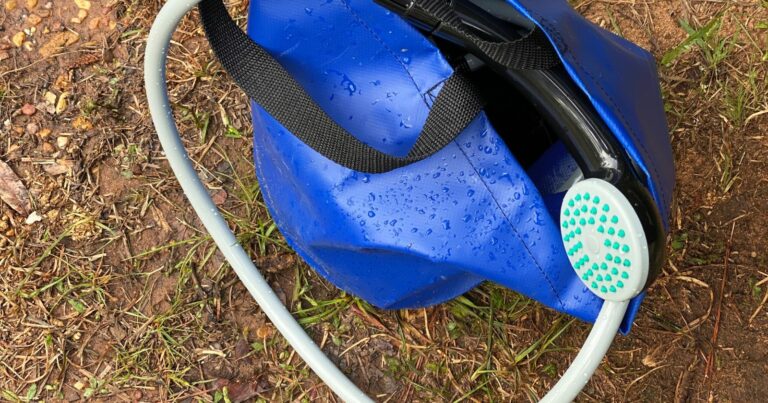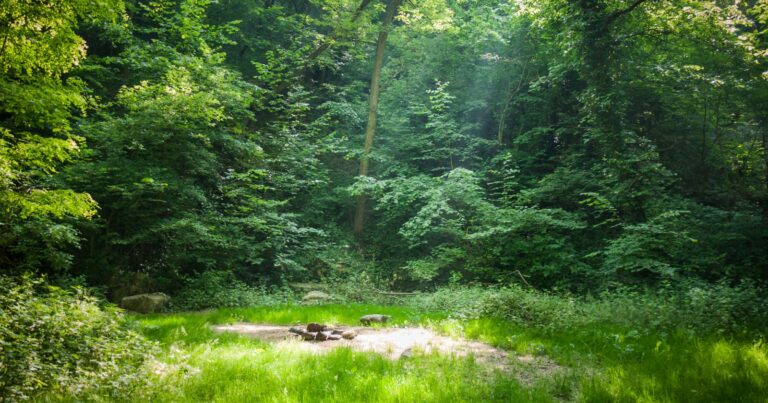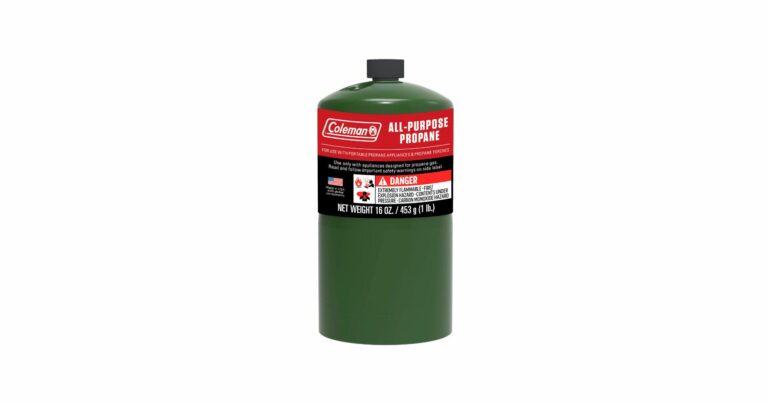Escape to Nature: Your Guide to Camping Anywhere in Michigan
Have you ever wanted to escape the hustle and bustle of daily life and connect with nature? Do you dream of pitching a tent under a canopy of trees, cooking over an open campfire, and falling asleep to the sound of crickets chirping? If this sounds like your ideal getaway, you’re probably itching to go camping in Michigan.
Before you pack up your gear and head to the wilderness, you may be wondering – can I legally camp anywhere in Michigan? The short answer is yes, camping is allowed on state-owned forest land with a few guidelines. Backpacking and car camping are permitted if your site is over a mile from a state park. You can camp for up to 14 days in a 30-day period. It’s illegal to dump waste in the water, so proper disposal is a must. buying certified firewood helps prevent spreading tree diseases.
Overall, with some preparation and by following campground rules, you can safely enjoy camping almost anywhere in Michigan’s beautiful state forests. A weekend spent connecting with nature can recharge your spirit. From scenic trails to secluded campsites, possibilities for adventure abound. Read on to learn more about where to camp, how to register, and tips to make your Michigan camping trip unforgettable. The call of the wild awaits!
Can I Legally Camp Anywhere in Michigan?
Before packing up your tent and booking it to the backcountry, you may wonder: is dispersed camping allowed on public lands here? The quick answer is yes, you can camp almost anywhere for free on Michigan’s state forest land. However, some key rules and preparation will set you up for an epic off-the-grid getaway.
Camping Regulations on State Land
While camping is permitted in Michigan’s state forests, some regulations protect the land and campers. Be sure to follow guidelines to enjoy your adventure safely and legally.
Backpacking and Car Camping
Known as “dispersed camping,” pitching a tent away from designated campgrounds is allowed if:
- Your campsite is over 1 mile from any state park or recreation area. This reduces your impact on high-traffic zones.
- You move sites after 14 days within any 30-day period. This prevents permanent occupation of sites.
Proper Waste Disposal
When camping off-grid, you must carry out all trash and waste. It’s illegal to discharge:
- Raw/treated sewage from watercraft into waterways. Use a self-contained system.
- Oil or oily bilge into the water. Absorbent pads can help.
Firewood Rules
Outbreaks of invasive pests threaten Michigan’s trees. You must:
- Use firewood sold by that campground or source it locally.
- Burn all wood completely to ash to prevent spreading diseases.
Following “leave no trace” principles helps preserve Michigan’s forests and wildlife for future explorers.
Finding the Best Camping Spots on State Land
With nearly 4 million acres of state forest land, hundreds of secluded campsites await across Michigan. Here are some top picks to consider:
Lower Peninsula
The Lower Peninsula offers a range of landscapes from Lake Michigan dunes to inland lakes and rivers. Check out these areas:
- Waterloo Recreation Area: Camp beside cliffs, beaches, and pine forests bordering Portage Lake.
- Yankee Springs Recreation Area: Relax near Gun Lake after hiking miles of scenic trails.
- Pinckney Recreation Area: Fish, boat, and swim on the Huron River and chain of small lakes.
Upper Peninsula
From sweeping Lake Superior vistas to boreal forests, Michigan’s wild side beckons up north. Top camping spots include:
- Tahquamenon Falls: Listen to the rush of waterfalls in lush forest.
- Pictured Rocks: Be lulled to sleep by the sound of Superior lapping sandstone cliffs.
- Hiawatha National Forest: Paddle remote rivers and lakes with wooded banks.
Rustic Campgrounds
For a few more amenities like picnic tables, fire rings, and outhouses, check out rustic campgrounds in:
- Aloha State Park
- Wilderness State Park
- Sleeper State Park
- Bewabic State Park
Note rustic sites operate on a first-come, first-served basis with no reservations. Arrive early to claim your spot.
How to Register Your Campsite on State Land
Wondering how to officially register your campsite for a legal, hassle-free stay? It’s thankfully simple on state forests.
Self-Registration
Most areas have a self-registration system to easily check in. Look for a wooden registration stand near trailheads or popular entrance roads.
Once you scout the perfect site, follow the posted instructions to:
- Fill out an envelope with your name, number of campers, dates, etc.
- Select the correct fee based on number of days. (Usually $15-20 per night).
- Deposit the envelope with cash or check into the locked collection box.
- Hang the permit on your site post for the duration of your stay.
Camping Permits
For some state forests like Porcupine Mountains or Nordhouse Dunes, camping permits are required. You can get these through:
- The DNR website or drop boxes on-site
- Calling the park office
- Visiting the office in person
Be sure to review rules for each area before venturing out.
Tips for Responsible Dispersed Camping
To safely enjoy your off-the-grid camping trip while protecting the land, keep these tips in mind:
Choose Durable Surfaces
Set up tents and parking on graveled areas or cleared sites to avoid damaging vegetation.
Leave No Trace
Pack out all trash and flipped rocks/logs should be returned to their original place. Leave the area pristine.
Bury Waste Deep
Dig cat holes 6-8 inches deep and 200 feet from water to properly dispose of human waste.
Practice Fire Safety
Use established rings or mound sand/soil to contain campfires. Fully extinguish fires before leaving.
Following “leave no trace” ethics allows these public lands to remain unspoiled for generations to come.
Gear Up for Your Michigan Backcountry Escape
Once you select the perfect wilderness refuge, it’s time to gather gear for a smooth camping trip. Be sure to pack:
- Tent/shelter: Choose a size to fit your group and the weather expected.
- Sleeping bags/pads: Check the temperature rating to stay cozy.
- Cookset: Bring pots, utensils, cups, plates, etc.
- Fire starter: Matches, lighters, and starter logs are essential.
- Flashlights: Hands-free headlamps allow you to work at night.
- First aid kit: Bandages, ointments, medications, etc. can treat minor injuries.
- Food/water: Meals, snacks, and plenty of water fuel your fun.
- Maps: Gauge distances and terrain to plan hiking routes.
With the proper gear and respect for nature, you’re ready to answer the call of the wild anywhere across Michigan’s grandeur.
FAQs
Do I need a camping permit to camp on state land?
In most state forests, you can register at the self-registration stands located at trailheads or park entrances. For some areas like Porcupine Mountains or Nordhouse Dunes, you need to get a permit in advance through the DNR website, drop boxes, or park office. Always check regulations for each area before your trip.
What are the rules about length of stay?
Dispersed camping on state land is limited to 14 consecutive nights within any 30-day period. You must move to a new location after hitting the 14-day maximum at one site.
How far do I need to camp from an official park or campground?
When dispersed camping in Michigan’s state forests, you must pitch your tent at least 1 mile away from designated parks and campgrounds. This reduces your impact on high-traffic areas.
Can I build an open campfire on state land?
Yes, you can have campfires if done safely and legally. Be sure to fully extinguish fires before leaving your site. Only use dead & downed wood, never cut live trees. Bring your own firewood or buy from local approved sources to prevent spreading invasive pests.
Is hiking allowed in state forests?
Michigan encourages hiking along with hunting, mountain biking, horseback riding, foraging, fishing, and other activities on state forest land. Make sure to stay on marked trails and tread lightly to leave no trace on the environment. Enjoy your hike!
Escape to Untamed Beauty
As humans, we’re drawn to the freedom of the forest, the thrill of open skies, and the song of wilderness. Now that you know you can legally camp across Michigan’s lush state lands, what adventure will you dive into first?
Grab your compass and sleeping bag to claim the perfect hidden campsite. Gaze upward through evergreen boughs to pick out constellations. Strum a guitar around the campfire and sing to the stars. Let the worries of everyday life drift away on lake breezes.
A whole world of wonder awaits right in your backyard. Let the spirit of adventure unleash your inner explorer. Breathe deep and set your soul free under the tall pines. Michigan’s majestic wilderness offers endless possibilities to connect with the wild within.







